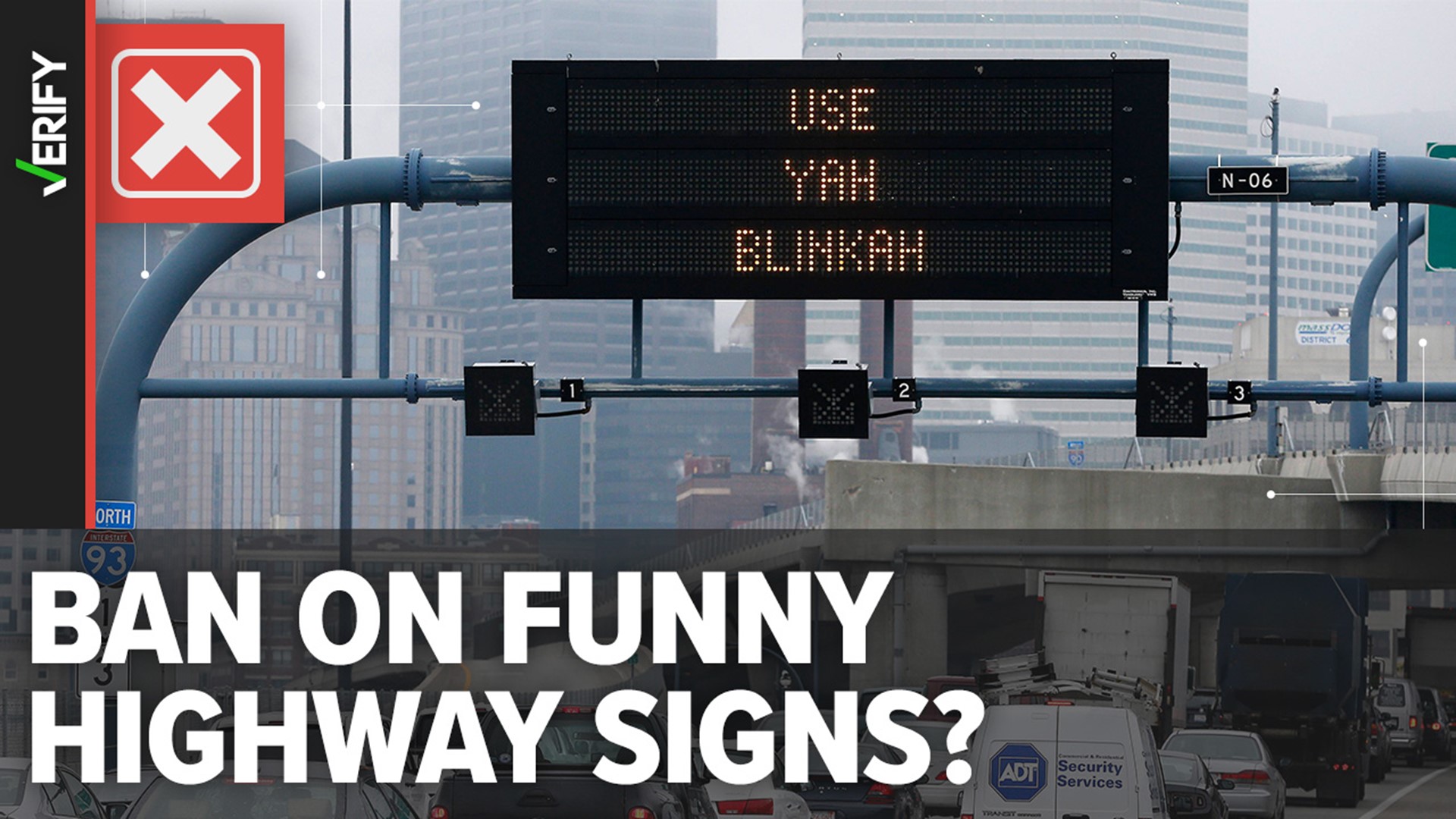Many states use funny or clever messaging to draw the attention of drivers on highways across the country.
For example, Massachusetts’ “Use Yah Blinkah” highway signs went viral in 2014, and messages like “Drive like the person your dog thinks you are” and “Hands on the wheel, not your meal” have brought chuckles to drivers in Arizona for years.
But in mid-January, several social media users and some news outlets claimed the federal government has plans to ban funny messages on electronic highway signs by 2026.
VERIFY reader Julian asked us if these claims are true.
THE QUESTION
Is the federal government banning funny messages on electronic highway signs by 2026?
THE SOURCES
- Federal Highway Administration (FHWA)
- Manual on Uniform Traffic Control Devices for Streets and Highways: 11th Edition
- Federal Register, the daily journal of the United States government
THE ANSWER
No, the federal government is not banning funny messages on electronic highway signs by 2026.
WHAT WE FOUND
The federal government is not planning to implement a ban on funny or clever messaging displayed on electronic highway signs by 2026, but it is discouraging the use of said messaging because it could potentially distract or confuse drivers.
On Dec. 19, 2023, the Federal Highway Administration released an updated edition of the Manual on Uniform Traffic Control Devices for Streets and Highways, a 1,100-page document that spells out how signs and other traffic control devices are regulated. States must adopt the rules outlined in the manual by Jan. 18, 2026.
In the chapter on changeable message signs (CMS), which is the category that overhead electronic highway signs fall under, the federal agency strongly recommends against the use of messages with obscure meanings, references to pop culture or those intended to be funny. Instead, it says messaging on these signs “should be simple, direct, brief, legible, and clear” when being used to display a traffic safety campaign.
“A CMS should not be used to display a traffic safety campaign message if doing so could adversely affect respect for the sign,” according to the manual. “Messages with obscure or secondary meanings, such as those with popular culture references, unconventional sign legend syntax, or that are intended to be humorous, should not be used as they might be misunderstood or understood only by a limited segment of road users and require greater time to process and understand.”
But a Federal Highway Administration spokesperson clarified in a statement that the agency is not banning these messages.
“The new edition of the Manual on Uniform Traffic Control Devices (MUTCD) does not include a ban on humor or pop culture references on changeable message signs. Rather, it includes a recommendation to avoid the use of humor and pop culture references because it may confuse or distract drivers. Messages should fulfill a need; command attention; convey a clear, simple message; command respect; and provide adequate time for proper response,” the spokesperson told VERIFY.
“The Federal Highway Administration supports the use of changeable message signs for traffic safety campaigns that are meant to ensure the safety of the traveling public. The use of signs that make cultural references may be of interest, but safety is our top priority,” the spokesperson added.
VERIFY partner station KPNX and the Associated Press contributed to this report.

